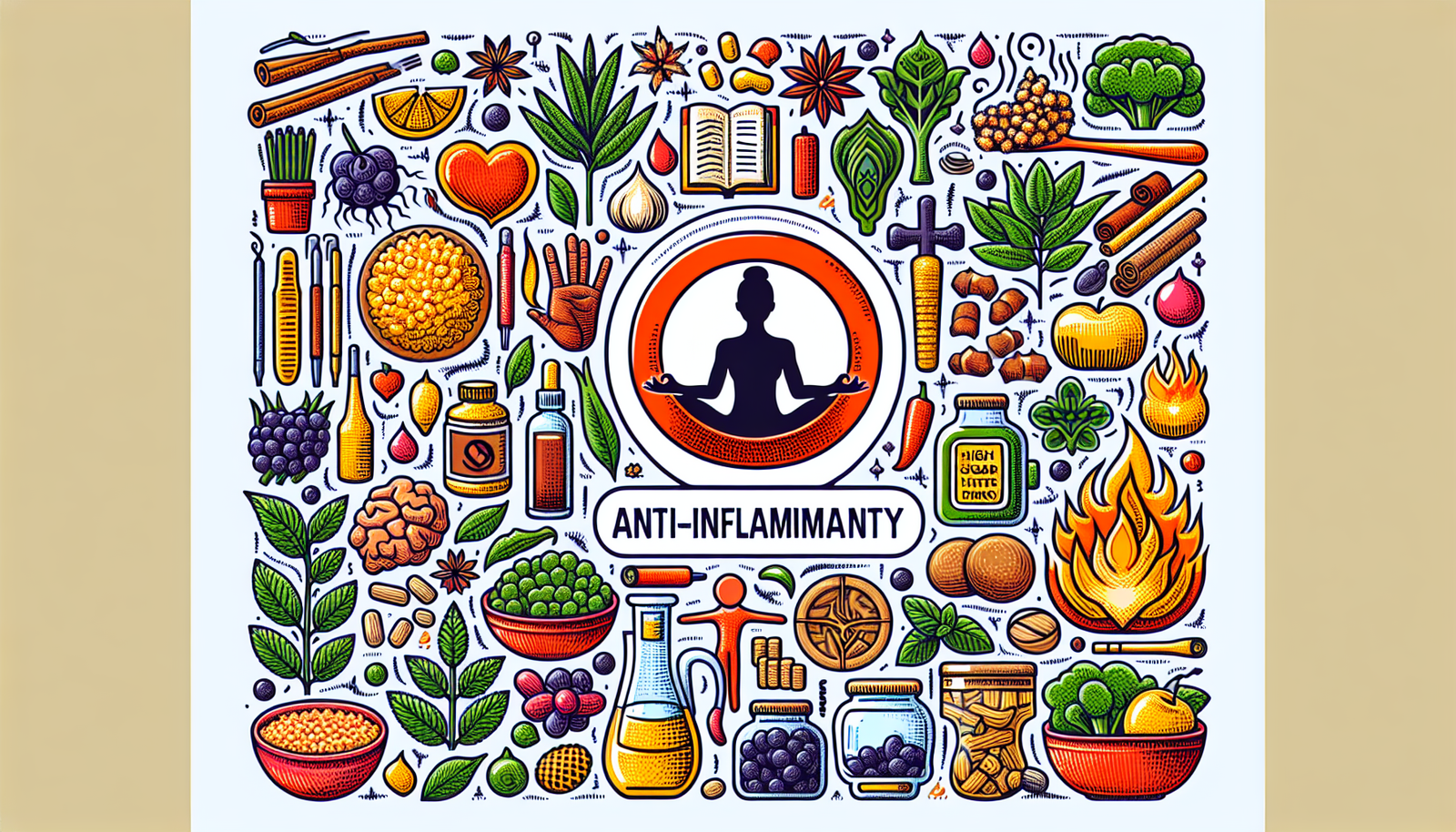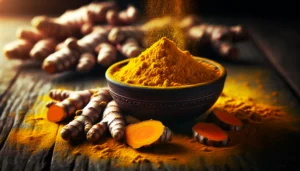Turmeric: A Natural Anti-Inflammatory Powerhouse
Turmeric: A Natural Anti-Inflammatory Powerhouse
Understanding Turmeric and Its Active Component, Curcumin
Turmeric (Curcuma longa) is a bright yellow spice derived from the root of the Curcuma longa plant, primarily found in Asia, particularly in India and Southeast Asian countries. Often hailed as a superfood, turmeric has been an integral part of traditional medicine systems like Ayurveda and Traditional Chinese Medicine for centuries. The primary active ingredient in turmeric is curcumin, responsible for most of its health benefits, particularly its powerful anti-inflammatory and antioxidant properties.
Curcumin represents only about 3% of turmeric by weight, making it crucial for the formulation and consumption of turmeric supplements to ensure that they deliver adequate amounts of curcumin to harness its health benefits. Numerous studies underline curcumin’s significance in modulating inflammation, making turmeric a subject of extensive biochemical research.
The Science Behind Turmeric’s Anti-Inflammatory Properties
Chronic inflammation is implicated in numerous diseases, including heart disease, cancer, metabolic syndrome, Alzheimer’s disease, and various degenerative conditions. The anti-inflammatory effects of curcumin stem from its ability to inhibit several molecules that play critical roles in inflammation.
-
Inhibition of Pro-Inflammatory Cytokines: Curcumin modulates the activity of various pro-inflammatory cytokines such as TNF-α, IL-1β, and IL-6. By lowering the activity of these compounds, curcumin can reduce the inflammatory response.
-
Suppression of NF-kB: The NF-kB signaling pathway is a key regulator of inflammation. Curcumin has been shown to inhibit NF-kB activation, thus preventing the transcription of genes that promote inflammation.
-
Antioxidant Effects: Turmeric exhibits antioxidant properties that combat oxidative stress, a significant contributor to chronic inflammation. By reducing free radicals in the body, curcumin helps to lower the oxidative damage inflicted on tissues.
- Regulation of COX-2 Enzyme: Curcumin may inhibit the cyclooxygenase-2 (COX-2) enzyme, similar to the function of nonsteroidal anti-inflammatory drugs (NSAIDs), which are commonly used to relieve inflammation and pain.
Health Benefits of Turmeric Beyond Inflammation
-
Joint Health: The anti-inflammatory properties of turmeric make it particularly beneficial for joint health. This benefit is well-documented in studies examining arthritic conditions such as rheumatoid arthritis and osteoarthritis. Regular intake of turmeric can assist in reducing joint pain and improving overall mobility.
-
Heart Health: Turmeric’s ability to reduce inflammation and oxidative stress can also significantly impact cardiovascular health. Studies indicate that it may help in improving endothelial function, which is crucial for heart disease prevention.
-
Cognitive Function: Emerging research suggests that curcumin may cross the blood-brain barrier, potentially aiding in the reduction of neuroinflammation. This property offers a promising avenue for the prevention and treatment of neurodegenerative diseases such as Alzheimer’s.
-
Digestive Health: Curcumin can stimulate the production of bile, enhancing digestion and supporting liver function. Its anti-inflammatory properties also contribute to managing inflammatory bowel diseases like Crohn’s disease and ulcerative colitis.
- Weight Management: By modulating inflammatory pathways, curcumin may play a role in weight management. Research has shown that it can influence fat cell metabolism and help reduce adipose tissue inflammation.
How to Incorporate Turmeric into Your Diet
Adding turmeric to your diet is simple and versatile. Here are several effective and enjoyable ways to do so:
-
Golden Milk: Combine turmeric powder, coconut milk, and spices like cinnamon and ginger; sweeten with honey or maple syrup for a delicious drink that offers a multitude of health benefits.
-
Curries and Stews: Incorporate turmeric into your favorite curry recipes or stews for added flavor and nutritional benefits. Cooking turmeric with black pepper, which contains piperine, can enhance curcumin absorption significantly.
-
Smoothies: Add a teaspoon of turmeric powder to your morning smoothie for a nutritional boost without sacrificing flavor.
-
Salad Dressings: Whisk together olive oil, turmeric, lemon juice, and your favorite herbs for a vibrant and health-promoting salad dressing.
- Turmeric Supplements: For concentrated doses of curcumin, consider turmeric supplements. Ensure that they contain black pepper extract (piperine) to increase bioavailability.
Potential Side Effects and Considerations
While turmeric is generally considered safe for most people, excessive consumption can lead to side effects. Some individuals may experience gastrointestinal disturbances, including nausea, diarrhea, or an upset stomach. It’s important to consult healthcare professionals, especially for those on blood thinners or other medications, to avoid potential interactions.
Additionally, high doses of curcumin may interfere with iron absorption or exacerbate gallbladder issues. Monitoring intake and seeking professional guidance is recommended, particularly during pregnancy or if one has underlying health conditions.
The Role of Bioavailability in Curcumin’s Effectiveness
Despite turmeric’s well-documented health benefits, curcumin’s bioavailability is relatively low due to rapid metabolism and systemic elimination. This means the body does not absorb curcumin efficiently. To enhance bioavailability:
-
Combine with Black Pepper: Piperine, an alkaloid found in black pepper, has been shown to enhance the absorption of curcumin by up to 2,000%.
-
Fatty Foods: Since curcumin is fat-soluble, consuming it with healthy fats (like olive oil or avocados) can increase its absorption.
- Heat Activation: Cooking turmeric can enhance its bioavailability. However, avoiding prolonged exposure to high heat is important, as this can degrade the properties of curcumin.
Research Backing Turmeric’s Efficacy
Numerous clinical studies support turmeric’s anti-inflammatory and health benefits, reflecting its significance as a natural remedy. For instance:
-
A systematic review published in the Journal of Medicinal Food concluded that curcumin supplementation effectively reduced the symptoms of osteoarthritis and knee pain.
-
A meta-analysis in the journal Nutrients found that curcumin supplementation leads to significant reductions in inflammatory markers like CRP (C-reactive protein) and IL-6.
- Research highlights curcumin’s potential in reducing the incidence of cognitive decline among the elderly, suggesting that it may help in maintaining cognitive function as we age.
Conclusion
Turmeric, with its active component curcumin, stands out as a natural anti-inflammatory powerhouse. With its multitude of health benefits, including but not limited to joint health, heart function, and cognitive support, turmeric provides a holistic approach to health and wellness. Incorporating turmeric into daily meals or supplementing responsibly can be a valuable part of a health-conscious lifestyle, maximizing the body’s inflammatory response and overall well-being while engaging with a centuries-old tradition. Emphasizing its role as a natural remedy, turmeric continues to demonstrate its potency in today’s world, reaffirming its status as an indispensable superfood.








